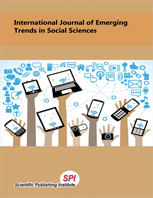The grandparent scam: A systems perspective case study on elder fraud and the concept of human layering
DOI:
https://doi.org/10.55217/103.v17i2.863Keywords:
Complexity science, Cybercrime, Elder fraud, Systems dynamics.Abstract
In April 2024, an 81-year-old Ohio man was charged with murder, assault, and kidnapping. The man believed that he was protecting his family from scammers threatening harm. What he did not realize was that the 61-year-old Uber driver he killed, was also a victim of the same scammers. This qualitative case study examines some common variants of the Grandparent Scam from a systems perspective and how weaponization of conscience is used in these scams. Additionally, this study examines the parallels between layering in money laundering and human layering in the execution of these scams. By examining the underlying dynamics and principles that enable these scams to succeed, law enforcement, regulatory agencies, and organizations can direct efforts to curtailing scammers’ success.


